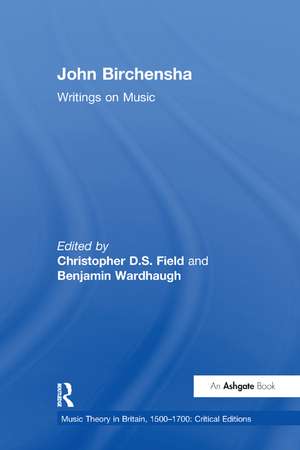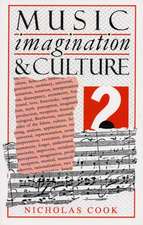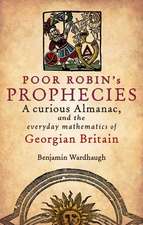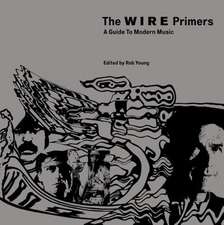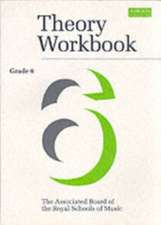John Birchensha: Writings on Music: Music Theory in Britain, 1500–1700: Critical Editions
Autor Christopher D.S. Field, Benjamin Wardhaughen Limba Engleză Paperback – 19 dec 2018
| Toate formatele și edițiile | Preț | Express |
|---|---|---|
| Paperback (1) | 469.34 lei 6-8 săpt. | |
| Taylor & Francis – 19 dec 2018 | 469.34 lei 6-8 săpt. | |
| Hardback (1) | 1054.71 lei 6-8 săpt. | |
| Taylor & Francis – 12 ian 2010 | 1054.71 lei 6-8 săpt. |
Preț: 469.34 lei
Nou
Puncte Express: 704
Preț estimativ în valută:
89.80€ • 93.77$ • 74.16£
89.80€ • 93.77$ • 74.16£
Carte tipărită la comandă
Livrare economică 15-29 aprilie
Preluare comenzi: 021 569.72.76
Specificații
ISBN-13: 9781138376212
ISBN-10: 1138376213
Pagini: 342
Dimensiuni: 156 x 234 x 18 mm
Greutate: 0.45 kg
Ediția:1
Editura: Taylor & Francis
Colecția Routledge
Seria Music Theory in Britain, 1500–1700: Critical Editions
Locul publicării:Oxford, United Kingdom
ISBN-10: 1138376213
Pagini: 342
Dimensiuni: 156 x 234 x 18 mm
Greutate: 0.45 kg
Ediția:1
Editura: Taylor & Francis
Colecția Routledge
Seria Music Theory in Britain, 1500–1700: Critical Editions
Locul publicării:Oxford, United Kingdom
Cuprins
Contents: Introduction; Birchensha's reputation as a music theorist; Birchensha's life; The practical part of music; The mathematical and philosophical parts of music; 'To reduce all the parts of musick to a regularity and just order'; The sources; Transcription policy; Dates. John Birchensha's Writings on Music: Dedicatory epistle and preface to Templum Musicum (1664); Letter to the Royal Society (26 April 1664); ' A compendious discourse'; Birchensha's description of his 'grand scale' (9 June 1665); 'Animadversion' for Syntagma musicæ (1672); Synopsis of Syntagma musicæ for the Royal Society (February 1675/6); Birchensha demonstrates his 'compleat scale of musick' to the Royal Society (10 February 1675/6); Rules of composition, I: Silas Taylor's manuscript; Rules of composition, II: William Corbett's manuscript; Rules of composition, III: Francis Withey's manuscript; Bibliography; Index.
Notă biografică
Dr Christopher D.S. Field, is Honorary Fellow in Music at University of Edinburgh, UK and Dr Benjamin Wardhaugh, is a Ph.D student in History, University of Oxford, UK
Recenzii
’Reading this volume increases one's curiosity about the place of the Royal Society within Resoration London's musical life... This is a substantial volume, well indexed and with quite an extensive bibliography; it will be of particular interest to specialists in music theory, but it also gives some valuable glimpses of the wider intellectual climate of Restoration London.’ The Consort ’The volume represents the ne plus ultra for a scholarly edition. Not a name, concept or source is mentioned that does not receive a gloss or complete commentary. The introductions and critical apparatuses themselves could serve as a bibliographical entrée to the scholarship of mid-17th-century music theory...a magisterial achievement and certainly the last word in presenting the ideas of this erudite musician caught in the spirit of the Scientific Revolution as he struggled to apply mathematics to the art of music.’ Early Music '... not only a comprehensive collection of Birchensha's writings, but also a fascinating account, both through those writings and the editors' extensive and sensitive commentary upon them, of the career and personality of this 'rare artist'... The editors' contribution both to the conception and execution of this volume is commendable, especially in the extended notes to each chapter which clarify terminology both musical and mathematical, fill in indispensable context, and cross-reference with other theoretical texts. The lengthy Introduction, too, provides a concise and informative account of Birchensha's life and an invaluable overview of his writings and their many interrelationships; it will surely remain the standard biographical account for many years to come. The transcription is exemplary in its clarity and attention to detail.' Viola da Gamba Society Journal '... comprehensive and authoritative... The main achievement of this volume is [...] to make available in a critical edition a body of work, much of which was previously unknown and
Descriere
John Birchensha (c.1605-1681) is chiefly remembered for the impression that his theories about music made on the mathematicians, natural philosophers and virtuosi of the Royal Society in the 1660s and 1670s, and for inventing a system that he claimed would enable even those without practical experience of music to learn to compose in a short time by means of 'a few easy, certain, and perfect Rules'. His great aim was to publish a treatise on music in its philosophical, mathematical and practical aspects entitled Syntagma musicæ. Unfortunately, the book never appeared, and no final manuscript of it survives. Recent research, however, has brought to light a number of manuscripts which allow us at last to form a more complete view of Birchensha's ideas and to gain at least a flavour of the lost Syntagma musicæ.
